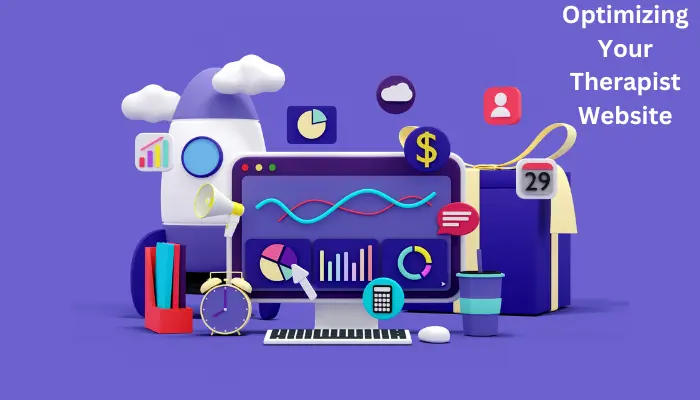Unlocking Success| SEO for Insurance Agents
In today’s digital age, where information is just a click away, it’s essential for insurance agents to adapt to the changing landscape of customer acquisition and retention. One of the most powerful tools at their disposal is Search Engine Optimization (SEO). In this article, we will delve into the world of SEO for insurance agents, beginning with a fundamental understanding of what SEO is and why it holds immense significance in the digital realm. LocalPro1 will provide the best SEO services for insurance agents.

Why You Need SEO for Your Insurance Agency
SEO, or Search Engine Optimization, is crucial for insurance agents for several reasons. In the digital age, consumers rely heavily on search engines to find information and services, including insurance products. Here are key reasons why SEO matters for insurance agents:
Increased Visibility: A well-optimized website is more likely to appear on the first page of search engine results. This increased visibility is vital for insurance agents as it ensures that potential clients find their services when searching for relevant keywords.
Targeted Traffic: SEO helps in attracting targeted traffic to an insurance agent’s website. By optimizing for specific keywords related to insurance products and services, agents can connect with individuals actively searching for insurance solutions, increasing the likelihood of conversion.
Credibility and Trust: Websites that appear at the top of search engine results are often perceived as more credible and trustworthy. Having a strong online presence through SEO establishes credibility for insurance agents, making them more appealing to potential clients.
Competitive Advantage: In a competitive industry like insurance, having a well-optimized website gives agents a competitive edge. If potential clients can easily find an agent’s website over competitors, it increases the chances of securing new business.
Local Search Optimization: Many insurance transactions are localized, with clients seeking services in their specific geographic area. Local SEO strategies help insurance agents appear in local search results, making it easier for them to connect with clients in their target regions.
Cost-Effectiveness: Compared to traditional advertising methods, SEO is often more cost-effective. While it requires an initial investment, the long-term benefits of consistently appearing in search results without ongoing ad expenses can significantly contribute to the agent’s ROI.
Adapting to Consumer Behavior: Modern consumers conduct extensive research online before making purchasing decisions, including insurance. Agents who optimize their online presence are more likely to align with consumer behavior, ensuring they are part of the decision-making process.
Mobile Optimization: With the increasing use of mobile devices, mobile optimization is a crucial aspect of SEO. Insurance agents must ensure their websites are mobile-friendly to provide a seamless experience for users, as search engines consider mobile-friendliness when ranking websites.
Local SEO for Insurance Agents

Local SEO, or Local Search Engine Optimization, is a digital marketing strategy aimed at increasing a business’s visibility in local search results on search engines like Google. It involves optimizing a website and online presence to rank higher for specific geographic keywords and phrases, making it easier for local customers to find and engage with a business. Local SEO is of great importance to insurance agents for several reasons:
Optimize Google My Business (GMB) Profile:
- Ensure your GMB profile is complete and accurate with your business name, address, phone number, and website.
- Select the correct category for your insurance business.
- Add high-quality photos of your office, staff, and any relevant images.
Local Keywords and Content:
- Incorporate local keywords in your website content. This includes mentioning your city, neighborhood, and nearby landmarks.
- Create blog posts or articles addressing local insurance concerns and topics.
Online Reviews:
- Encourage satisfied clients to leave positive reviews on your Google My Business profile. Reviews are a significant factor in local search rankings.
- Respond promptly and professionally to all reviews, both positive and negative.
Local Citations:
- Ensure your business information is consistent across various online directories and platforms.
- List your insurance agency on local business directories, such as Yelp, Yellow Pages, and local chambers of commerce.
Mobile Optimization:
- Ensure your website is mobile-friendly, as many users search for local services on mobile devices.
- Optimize page load times for a better user experience.
Local Link Building:
- Build relationships with local businesses and organizations. This can lead to natural link-building opportunities.
- Participate in local events or sponsor local community activities, and make sure you get mentioned online.
Social Media Presence:
- Maintain an active presence on social media platforms, focusing on local engagement.
- Share relevant local news, events, and insurance tips.
Location-specific Landing Pages:
- Create landing pages on your website targeting specific locations you serve.
- Customize content to address the unique insurance needs of each location.
Schema Markup:
- Implement local business schema markup on your website to provide search engines with structured information about your business.
Local SEO Analytics:
- Use tools like Google Analytics and Google Search Console to monitor your local SEO performance.
- Track the effectiveness of your local SEO efforts and make adjustments as needed.
SEO for Insurance Companies and Agents
SEO (Search Engine Optimization) is crucial for insurance agents to enhance their online presence, attract potential clients, and stay competitive in the digital landscape. Here are various SEO strategies tailored to insurance agents and explanations of how each can benefit them:
Content Creation and Optimization:
Benefit: High-quality, informative content helps insurance agents establish authority and trust with their audience. It can also attract organic traffic from search engines.
Explanation: Create blog posts, articles, guides, and FAQs that address common insurance-related questions and concerns. Optimize content with relevant keywords and ensure it’s well-structured, readable, and valuable to the target audience.
On-Page SEO Best Practices:
Benefit: On-page SEO techniques improve the overall visibility and ranking of insurance agent websites, making them more accessible to search engine users.
Explanation: Optimize meta titles, descriptions, and header tags with target keywords. Ensure your website loads quickly, is mobile-friendly, and has a user-friendly design. Use descriptive image alt tags and maintain an organized URL structure.
Off-Page SEO and Backlink Building:
Benefit: Backlinks from reputable websites can improve your website’s authority and credibility, leading to higher search engine rankings.
Explanation: Build relationships with other industry websites, offer guest posts or collaborations, and share your expertise. Encourage clients and partners to link to your website. Monitor and disavow harmful backlinks to maintain a healthy link profile.
Mobile Optimization:
Benefit: As more people access the internet via mobile devices, ensuring your website is mobile-friendly improves user experience and search engine rankings.
Explanation: Use responsive design to adapt your website to various screen sizes. Optimize images and minimize large files for faster mobile loading. Check for mobile usability issues and fix them.
Local SEO for Insurance Agents:
Benefit: Local SEO strategies help insurance agents attract clients in their service areas, as many insurance transactions are location-specific.
Explanation: Claim and optimize your Google My Business listing. Encourage client reviews, especially positive ones. Include location-specific keywords in your content and meta tags. Ensure consistent NAP (Name, Address, Phone number) information across online directories.
Social Media Integration:
Benefit: Active social media profiles and integration with your website can increase your online presence and engage potential clients.
Explanation: Share your blog content on social media platforms. Encourage social sharing of your content. Use social media to provide customer service and engage with your audience.
Tools and Resources for SEO

Insurance agents can benefit from a variety of SEO tools and resources to streamline their efforts and improve their search engine optimization results. Here are some essential tools and resources:
Keyword Research Tools:
Google Keyword Planner: It’s a free tool that helps you find relevant keywords and provides insights into search volume and competition.
Ahrefs: A comprehensive SEO tool that offers keyword research, competitive analysis, and backlink analysis to identify valuable keywords for insurance-related topics.
On-Page SEO Tools:
Yoast SEO (for WordPress): A plugin that provides real-time on-page SEO suggestions and helps optimize content for target keywords.
SEMrush: Offers on-page SEO recommendations, content optimization tools, and auditing features to improve on-page SEO.
Technical SEO Tools:
Google Search Console: It provides insights into website performance, indexation issues, and helps submit sitemaps for better crawling.
Screaming Frog SEO Spider: A powerful tool for website auditing, it identifies technical SEO issues such as broken links, duplicate content, and missing meta tags.
Backlink Analysis Tools:
Moz Link Explorer: Provides insights into your website’s backlink profile, helping you identify high-quality backlinks and opportunities for link building.
Ahrefs: Offers detailed backlink analysis, including competitor backlink research, anchor text analysis, and more.
Local SEO Tools:
Google My Business: Essential for local SEO, this tool allows insurance agents to manage their business listing, gather reviews, and monitor local search performance.
BrightLocal: Provides local SEO audit reports, citation building, and monitoring tools to improve local search visibility.
Content Creation and Optimization Tools:
Grammarly: Helps ensure content is error-free and well-written.
Content optimization plugins (e.g., SurferSEO, Clearscope): Analyze top-ranking content and suggest improvements to make your content more competitive.
Social Media Management Tools:
Buffer, Hootsuite, or Sprout Social: These tools allow you to schedule and manage social media posts, which can help drive traffic to your website and improve your online presence.
Analytics Tools:
Google Analytics: Offers in-depth insights into website traffic, user behavior, and conversions, helping insurance agents track the performance of their SEO efforts.
Google Data Studio: Create custom dashboards and reports to visualize and analyze SEO data from various sources.
Educational Resources:
Moz Academy: Provides comprehensive SEO courses and resources to help insurance agents learn and master SEO techniques.
Google’s SEO Starter Guide: A beginner-friendly resource from Google that explains essential SEO concepts and best practices.
Conclusion
The importance of SEO for insurance agents cannot be overstated in today’s digital age. As insurance markets continue to evolve and become increasingly competitive, having a strong online presence is essential for success. Effective SEO strategies enable insurance agents to enhance their visibility on search engines, attract a targeted audience, and ultimately grow their client base. By optimizing their websites, creating valuable and relevant content, and staying up-to-date with the latest SEO trends, insurance agents can position themselves as trusted experts in their field and build lasting relationships with customers. Feel free to contact us for nay type of query or the services related to SEO for insurance agents.
FAQs
What Is Seo, And Why Is It Important For Insurance Agents?
SEO stands for Search Engine Optimization, which involves optimizing your online content to improve its visibility on search engines. For insurance agents, SEO is crucial as it helps enhance online presence, attract potential clients, and boost the visibility of insurance services.
How Can Seo Benefit Insurance Agents In The Competitive Online Market?
SEO helps insurance agents stand out in a crowded online marketplace by improving search engine rankings. Higher rankings lead to increased visibility, driving organic traffic to your website and giving you a competitive edge.
What Specific Seo Strategies Are Effective For Insurance Agents?
Effective SEO strategies for insurance agents include keyword optimization, content creation, local SEO, link building, and mobile optimization. These strategies enhance your website’s relevance and authority, making it more likely to rank higher in search results.
How Can Insurance Agents Identify Relevant Keywords For Seo?
Identify keywords by researching common insurance-related terms, competitor analysis, and using keyword research tools. Focus on long-tail keywords specific to your niche, as they often attract more targeted and qualified leads.
Is Local Seo Important For Insurance Agents, And How Can It Be Implemented?
Yes, local SEO is crucial for insurance agents, as it helps target clients in specific geographic areas. Implement local SEO by claiming and optimizing your Google My Business profile, using local keywords, and obtaining positive reviews from satisfied clients.
Our Services
Our Latest Posts
PPC White Label Services by Local Pro1 | Expert Solutions
PPC White Label Services by Local Pro1 | Expert Solutions...


























